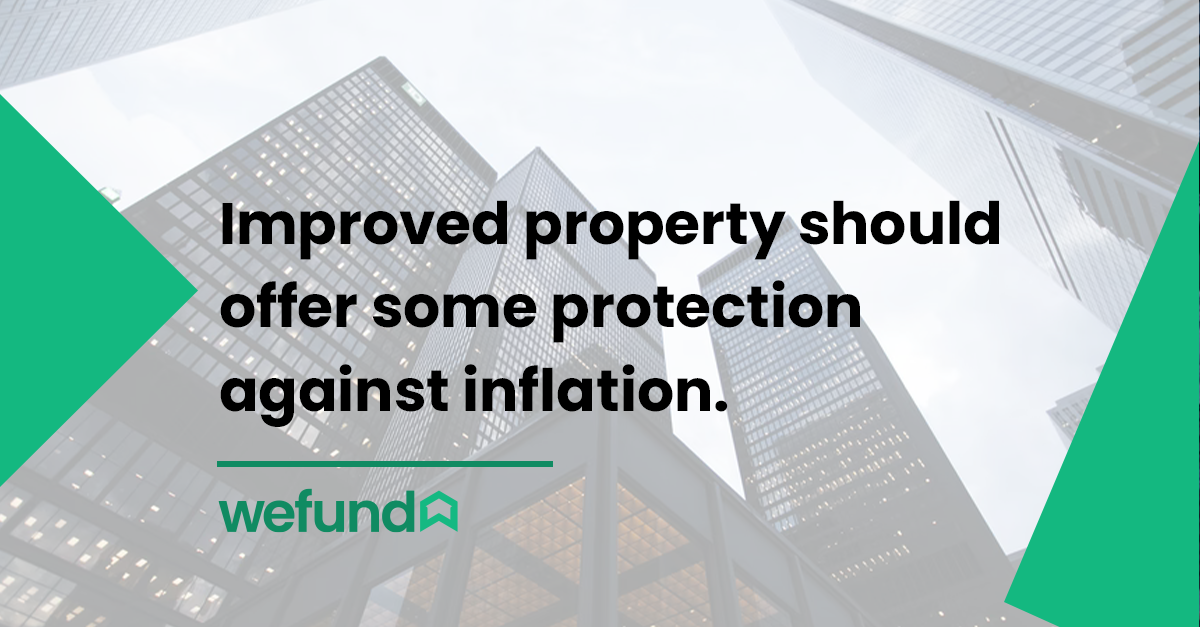
Improved property should offer some protection against inflation.
by Tommy Friedman | November 25, 2021
Inflation - an emotive word. Too little leaves us with flat economic growth - too much and images of people rolling around wheelbarrows of cash to buy bread appear in our head.
Owners of real estate over the last decade, especially in Australia, have largely been the beneficiaries of what has been a very low inflationary environment resulting in record low interest rates and record high property prices.
But today – the tide may be turning. Supply chain issues, material and labour shortages and huge demand side pressure are leading to inflationary pressure in everything from fertiliser to timber. Accordingly, the taps of monetary and fiscal stimulus are slowly being turned off and even interest rates in developed economies are starting to rise (New Zealand and Norway are recent examples).
Interest rate hikes and reduction in credit supply usually spell trouble for real estate valuations. The logic is that it leads to a rise in cap rates that will outweigh any CPI linked rental income increases (the denominator is more powerful than the numerator in any income capitalisation approach to property valuation). Another reason is that as borrowing costs rise, the quantum the purchaser can afford to borrow reduces, meaning they will either have to come up with more equity or reduce the amount they can bid for a specific asset. Further, inflation can have a negative effect on tenants’ plans to expand or operate – as labour and operating costs go up and business confidence falls.
However, inflation may not be doom and gloom for all property – because it will lead to a rise in replacement costs, which may support values of existing built assets. In Australia, construction costs are rising across the board due to labour and material shortages and in many cases, project start dates are delayed. Assuming inflation does not lead to a credit crunch and dramatic rate hiking that causes capital markets to dry up and borrowing costs to become prohibitive, then existing assets - where much of the value is in the building - should hold value.

Consider, for example, commercial office towers in the CBD. A large proportion of the value inherent in a CBD office tower lies in the building rather than the land. It is the supply of floor space and associated amenities that attract tenants and investors. This contrasts with a strip retail shop, where most of the value rests within the location and the built component is simply a means of keeping the wind and rain off valuable land.
Assuming demand for space persists, but construction costs continue to rise, then existing assets should hold value. Built assets are commodities and commodities typically have price floors at their marginal cost of production – in property this is called the ‘replacement cost’ and it rises with inflation. Also benefitting existing assets is more attractive pricing for tenants. The rental asking rates for planned and under construction offices will rise to keep pace with increasing construction costs. This means existing assets will be able to offer space to tenants at a discount to new supply. Lastly, in an inflationary environment, new supply will be muted. It is hard for developers to be comfortable to proceed with a project in a market facing weekly cost escalations and a rising rate environment. Lower supply is good news for existing stock.
This is a phenomenon that can also play out in industrial assets - where demand for space is running hot and a large proportion of the value is held in the built component rather than the land. Similarly, residential properties, particularly boutique apartments, could mirror the situation with commercial property, as price points for new products will have to rise with construction costs (making existing assets more attractive).
Real estate is a store of value and well located, well-built properties will always be in demand in growing, prosperous cities such as Melbourne or Sydney. This isn’t to say that rising interest rates and runaway inflation won’t affect the market, but it does mean that there may be some extra protection in assets where the built component is a large proportion of the property’s value.
Nobody knows what the future holds, but everybody can speculate.
To stay up to date with our latest articles, blogs and podcasts, head to Wefund's Website and sign up to our newsletter.
RECEIVE UPDATES

Have a loan scenario?
Find out how wefund can help you with fast, transparent non-bank property and development finance. Provide your scenario details below and we’ll get back to you right away.
© 2026. All rights reserved.


